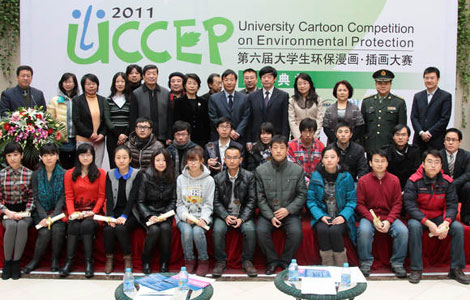China must brace for global shocks: PBOC
Updated: 2012-01-09 14:04
(Xinhua)
|
|||||||||
BEIJING - China must brace itself for international spillovers in 2012 despite a positive outlook for the domestic economy, the chief of the country's central bank has said.
The global economy is going to face a string of difficulties and uncertainties in 2012, with the evolving debt crisis in the Eurozone, the uncertain US economic outlook and the slowing growth of emerging countries, Zhou Xiaochuan, governor of the People's Bank of China, said in an interview with Xinhua.
The government must watch carefully and be ready to pick appropriate policy instruments to combat external shocks at any time, Zhou said.
"We need to be prepared for a poor external environment," he said.
However, he remains optimistic about the world's second largest economy despite its cooling trend.
The country's GDP expansion slowed to 9.1 percent in the third quarter of 2011, down from 2010's full-year growth of 10.4 percent.
But Zhou said China's growth momentum will still go strong in 2012, as local governments are slated for reshuffling.
Risks from local government debts and property loans are controllable, he said, and the slowdown in price rises makes anti-inflation efforts not as urgent as in early 2011.
"It is not a very good time to push forward market-oriented interest rates," he said.
However, as for exchange rate regime, Zhou said the RMB's floating band could be widened when the country's capital inflows and outflows are more balanced.
Currently, the central bank allows the yuan to rise or fall by 0.5 percent from its central parity rate each trading day.
In regards to the overall progress of the country's financial sector, Zhou said, "Over the past five years, it did a good job. But we are a developing country, and the sector is entering a crucial stage of reform. Our task is still arduous."
China's financial policymakers concluded a two-day national financial work conference on Saturday, stressing that the financial industry must serve the real economy, improve the real economy's access to finance and prevent overspeculation and virtual bubbles from inflating the economy.
Supervision over the financial sector must be strengthened to prevent systemic risk, Premier Wen Jiabao said at the meeting, calling for banking institutions to establish a more complete and prudent risk monitoring regime.
Related Stories
PBOC doubles size of currency swap with Hong Kong 2011-11-23 08:06
PBOC: Too soon to loosen grip on economy 2011-11-17 07:56
PBOC to keep credit, capital levels in check 2011-01-06 07:55
PBOC drains 83b yuan from money market 2011-04-15 09:18
- Cartoon industry gets more animated
- Land supply up 37% in China last year
- China to maintain monetary policy 'prudent': PBOC
- Beijing to continue housing purchase restrictions
- Online video sites fight over copyright
- Chinese insurers collect $226b in premiums
- Regional free trade talks in the pipeline
- China retained auto sales crown









